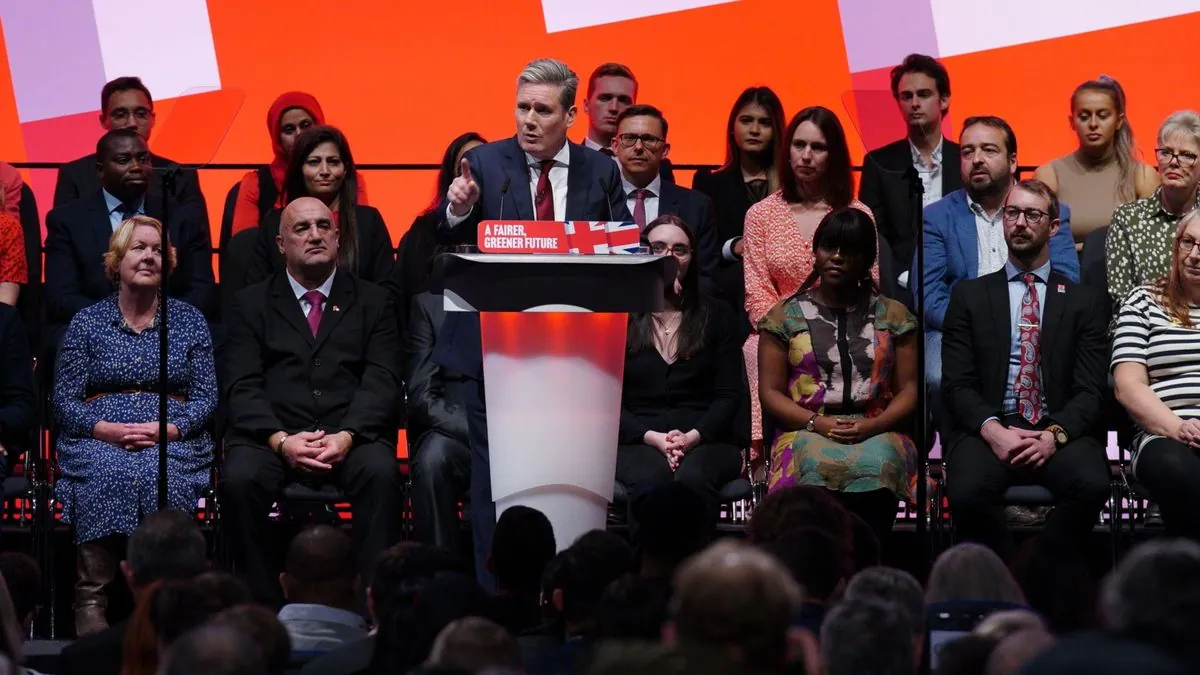Labour's Balancing Act: Socialist Roots vs. Governance Realities
Labour Party faces ongoing challenges balancing socialist principles with practical governance. Historical tensions and leadership choices highlight the need for reform in party structure to ensure future electability.

The Labour Party, founded in 1900 as a coalition of trade unions and socialist organizations, continues to grapple with the delicate balance between its socialist roots and the practicalities of governance. This tension, deeply ingrained in the party's DNA, has been a recurring theme throughout its history, shaping its leadership choices and policy directions.
Keir Starmer, the current Labour leader, faces the challenge of navigating these waters as the party potentially approaches power. The transition from opposition to government is fraught with difficulties for any party, but Labour's socialist principles add an extra layer of complexity.
Historically, Labour governments have faced intense scrutiny from their own members. In the late 1970s and early 1980s, Labour prime ministers and chancellors were subjected to harsh criticism at party conferences, accused of betraying working-class interests. This distrust of leadership remains a fundamental aspect of Labour's culture, often leading to a divide between the party's grassroots and its parliamentary representatives.

The party's membership has consistently shown a preference for leaders who embody socialist ideals. In 2010, Ed Miliband was chosen over his brother David, despite concerns about his electability. Five years later, Jeremy Corbyn's election as leader marked a significant shift towards traditional left-wing policies. Under Corbyn's leadership, party membership surged to over 500,000, reflecting a renewed enthusiasm for socialist principles.
"Our manifesto is a manifesto for hope. A manifesto to bring real change. A manifesto full of popular policies that the political establishment has blocked for a generation."
However, this ideological purity came at a cost. Labour's 2019 election defeat under Corbyn was its worst since 1935, highlighting the gap between party members' preferences and the broader electorate's views.
Starmer's leadership campaign in 2020 reflected the ongoing influence of the party's left wing. To secure victory, he made promises aligned with Corbyn's policies, only to later distance himself from many of these commitments. This strategy underscores the challenge of appealing to both the party membership and the general public.
The current party structure, which gives significant power to individual members in leadership elections, poses potential risks. There are concerns that a future leadership contest could result in the election of a candidate ill-suited for the role of Prime Minister, similar to the challenges faced during Corbyn's tenure as opposition leader.
To address this, some argue that Starmer should revive plans to reform the leadership election process, potentially reintroducing an electoral college system. This would aim to balance the influence of party members with that of MPs and affiliated organizations, potentially leading to more electable leaders.
As Labour looks towards the future, it must find a way to honor its socialist heritage while adapting to the realities of modern governance. The party's ability to strike this balance may well determine its success in future elections and its effectiveness in government.


































